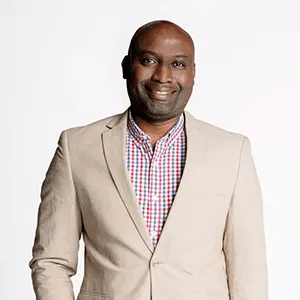How to Stop Blaming in Marriage – A Couples Course Guide
|
Getting your Trinity Audio player ready...
|

You find yourselves in the same argument again, but it’s no longer about who forgot to take out the trash. It’s become a battle of character, a report of past failures, and a desperate need to be proven right.
The conversation isn’t about solving a problem; it’s about assigning fault. This is the blame cycle, and it’s one of the most damaging patterns a marriage can face.
Harville Hendrix, Ph.D., and Helen LaKelly Hunt, Ph.D. (Imago relationship therapists and authors) note that blaming a partner simply shifts negative feelings onto them without resolving the problems.
They said, “When you blame, you put all the burden of your frustrations on your partner.”
If you’re wondering how to stop blaming in marriage, you’re already taking the first step toward breaking free. This destructive pattern destroys the very foundation of trust and partnership, but it doesn’t have to be your story.
With the right tools like those found in a structured couples course for conflict resolution, you can replace finger-pointing with empathy and build a stronger, more connected relationship.
How the Blame Cycle Damages a Marriage
Blaming is more than just a poor communication habit; it’s a destructive force that slowly erodes the health of your relationship.
When one or both partners consistently default to accusation, it creates an environment of defensiveness and insecurity.
Instead of feeling like teammates tackling a problem, you become opponents in a constant courtroom drama where someone must be found guilty.
This cycle builds deep-seated resentment. The blamed partner feels attacked and unappreciated, while the partner who blames often feels unheard and alone in carrying the burdens of the relationship.
As Brené Brown, Ph.D., research professor and author, emphasizes, this pattern represents a significant breakdown in emotional connection.
She explains, “Blame is simply the discharging of discomfort and pain… Blaming is very corrosive in relationships, and it’s one of the reasons we miss our opportunities for empathy.”
This insight reveals how blame functions as an emotional shortcut that ultimately threatens the empathy needed to heal relationships fractured by ignoring your partner’s voice.
This pattern is incredibly common; in fact, 60% of couples who seek out a counselor name ‘not listening’ or ‘ignoring’ as a significant problem in their relationship, which is often a direct symptom of the blame game.
Recognizing Signs You’re Stuck in a Blame Loop

The first step to breaking any cycle is recognizing you’re in it. The marriage blame cycle often manifests in predictable ways.
Common Blame Phrases
Listen for absolute, accusatory language like “You always…” or “You never…”. These statements are rarely true and immediately put the other person on the defensive. They generalize a specific behavior into a character flaw.
Keeping Score of Past Mistakes
When a current disagreement instantly triggers a recap of every related past mistake, you’re deep in the blame loop. This “kitchen sinking” tactic—where you throw every unrelated issue into the argument—ensures no single problem can ever be solved.
Attacking the Person Instead of the Problem
There’s a critical difference between criticizing a behavior and criticizing a person’s character. “I felt hurt when you didn’t call” is about behavior. “You are so inconsiderate and selfish” is an attack on character, and it’s a hallmark of blaming.
Why Blaming Often Feels Easier Than Owning Your Role

If blaming is so harmful, why do we do it? It often boils down to self-protection. Admitting fault or acknowledging our role in a conflict requires vulnerability, which can be a risk.
Blaming is a defense mechanism; it externalizes a problem and protects our ego in the moment. By making an issue our partner’s fault, we shield ourselves from feelings of inadequacy, shame, or failure.
This instinct, while understandable, is ultimately a dead end. As relationship counselor and author John Gray, Ph.D., explicitly cautions in Men Are from Mars, Women Are from Venus, “blaming does not work.”
He notes that whether one partner feels they are giving more or less in the relationship, blaming the other partner never helps resolve the issue. This is because it immediately puts the other person on the defensive, shutting down the productive dialogue needed for a real solution.
Stress, insecurity, and unresolved past experiences can all fuel this defensiveness. If we grew up in environments where mistakes were harshly punished, we might have learned to avoid responsibility at all costs.
In marriage, this learned behavior translates into a direct strike: I blame you before you can blame me. It’s a self-fulfilling behavior that creates conflict.
Practical Communication Skills to Replace Blame
Breaking the cycle requires intentional, new ways of communicating. These skills are often the core curriculum of any effective couples course for conflict resolution.
Use “I” Statements
This is the antidote to “You” statements. “I” statements allow you to express your feelings without launching an accusation.
The formula is: I feel [emotion] when [specific behavior] happens because [reason]. I need [request].
For example, “I feel overwhelmed when the dishes pile up because I value a tidy space. I need us to work on a system for after dinner.”
Focus on One Issue at a Time
Agree to discuss only the present issue. If the conversation starts to wheel into past grievances, gently guide it back.
“I want to hear about that other concern, but can we please solve this one first?” This prevents the conversation from becoming overwhelming and hopeless.
Reflective Listening
This technique ensures you’re truly understanding each other instead of just waiting for your turn to talk.
After your partner speaks, try saying, “What I hear you saying is…” and paraphrase their point. It forces you to listen for understanding and shows your partner you value their perspective, immediately lowering defenses.
How Couples Courses Can Break the Blame Habit
While articles and advice can provide direction, a structured couples course, such as Fight Less Love Again provides the map and the practice field needed to make lasting change.
These courses are designed specifically to deal with patterns like the blame cycle.
Structured Skill-Building
Courses don’t just tell you what to do; they guide you through how to do it with sequential lessons. You don’t just learn about “I” statements; you practice them in exercises designed to target your specific conflict patterns.
Practice with Feedback
Many courses include exercises or prompts for you to complete together. This safe, low-stakes environment allows you to test new communication styles and receive immediate feedback from your partner on what feels more effective.
Accountability Through Shared Goals
Enrolling in a course is a shared commitment. You become accountable to each other and to the process of growth.
Working through modules together creates specific milestones and allows you to celebrate progress as a team, reinforcing your identity as partners rather than opponents.
Self-Paced Tools for Ongoing Practice
For couples who may not be ready for therapy or prefer privacy, self-guided online courses and couple conflict toolkit is a powerful alternative.
These self-paced tools for ongoing practice allow you to break the blame cycle from the comfort of your own home, on your own schedule.
They provide the structure of a program without the potential intimidation of involving a third party, allowing you to reinforce positive habits in your daily life.
Simple At-Home Exercises to End Blame
You can start implementing these techniques today. Consistency is key to rewiring old patterns.
Daily Appreciation Sharing
Commit to sharing one specific, genuine appreciation for your partner every day. This simple act shifts the focus from what’s going wrong to what’s going right, building a bank of goodwill that can help you deal with conflicts more gently.
The Pause Rule
Agree on a neutral “pause” word or signal (e.g., “time out,” “red light”) that either partner can use when a conversation starts to escalate into blame.
The rule is that when called, you must take a 20-30 minute break to cool down before reconvening to continue the discussion calmly.
Weekly Check-In Meetings
Set aside 15 minutes once a week for a calm, scheduled “business meeting” for your relationship. Discuss wins, challenges, and needs for the upcoming week.
The structure prevents conflicts from erupting unexpectedly and ensures you have a dedicated time to connect and problem-solve as a team.
Choosing Understanding Over Winning
Ending blame in marriage requires a shift in mindset: from wanting to win the argument to wanting to understand your partner. The goal is not to prove who is right, but to understand what is right for the relationship.
It’s about realizing that if you “win” an argument by blaming and shaming your partner, you both ultimately lose. Changing these deep-seated patterns takes time, patience, and considerable practice, but it is entirely possible.
Every time you choose a gentle word over a sharp accusation, you are building a new, stronger marriage.
FAQs
Why is blaming so harmful to a marriage?
Blaming is harmful because it shifts the focus from solving a problem to attacking a person’s character.
It fosters defensiveness, undermines trust, and prevents issues from being resolved, leading to recurring arguments and deep-seated resentment.
How can we tell if we’re stuck in a blame cycle?
Common signs include:
- Frequent use of “You always…” or “You never…” statements.
- Constantly bringing up past mistakes during current arguments.
- Feeling the need to defend yourself constantly.
- Conversations that quickly escalate from a small issue to a large character attack.
Why do people tend to blame their partners?
Blaming is often a self-protection mechanism. It’s easier to protect one’s ego by externalizing a problem than to be vulnerable and admit fault.
Stress, insecurity, and unresolved past experiences can also fuel a tendency toward defensiveness and a tendency to blame.
What strategies help replace blame with teamwork?
Key strategies include:
- Using “I” statements to express feelings without accusation.
- Practicing reflective listening to ensure understanding.
- Focusing on one present issue at a time.
- Implementing a “pause rule” to stop escalations.
- Shifting the goal from “winning” to “understanding.”
Can self-guided courses really help stop the blame game?
Yes. Self-guided courses offer the structured skill-building and exercises necessary to practice new communication habits in a private, low-pressure environment.
They offer a framework for accountability and consistent practice, which is essential for breaking the automatic habit of blame.
Conclusion: From Adversaries to Allies
The journey to stop blaming in marriage is a journey back to each other. It’s about rebuilding a partnership where you are on the same team.
By replacing blame with empathy and accusations with understanding, you transform conflict from a threat into an opportunity for deeper connection.
Keep in mind that small, consistent changes (practicing one new communication skill, holding one weekly check-in) make the biggest difference over time. You have the power to break the cycle.
With structured guidance from a couples course or the simple exercises outlined in this blog, you can learn to fight less, understand more, and build a marriage defined by how you overcome challenges together.
References
- Harville & Helen. (n.d.). HarvilleHendrix.com. Retrieved from https://harvilleandhelen.com/
- Brené Brown. (n.d.). BrenéBrown.com. Retrieved from https://brenebrown.com/
- Everyday Health. (n.d.). Does marriage counseling work? Retrieved from https://www.everydayhealth.com/emotional-health/does-marriage-counseling-work
- Mars Venus (John Gray). (n.d.). MarsVenus.com. Retrieved from https://www.marsvenus.com/john-gray

